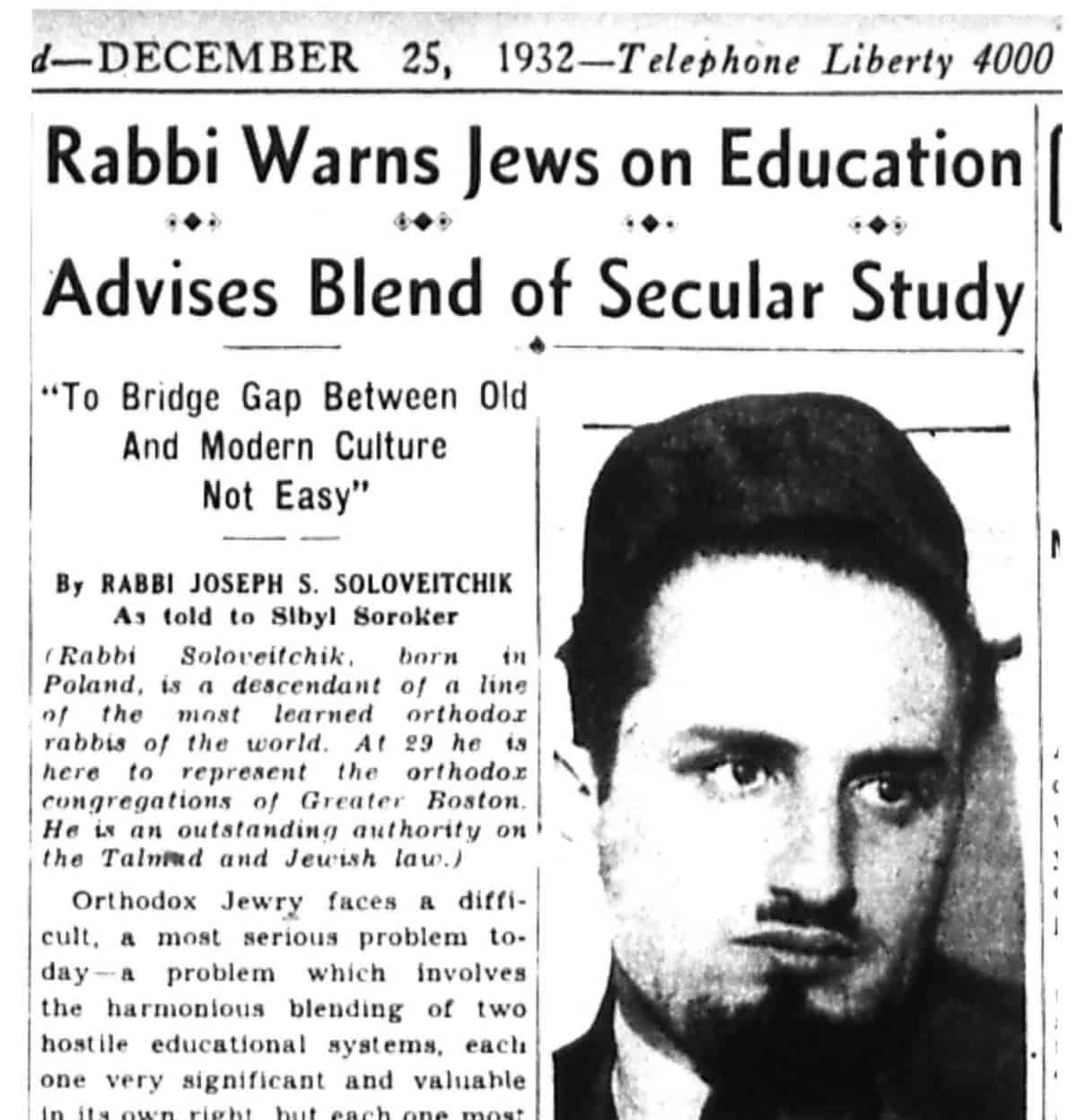Moses Mendelssohn and the Mimetic Society: Then and Now
Lawrence Kaplan makes a case for Mendelssohn's vision for our time.
A Time To Keep Silence, and A Time To Speak
Tragic events this past summer brought a wave of protests against racial injustice that shows few signs of abating. Yitzhak Grossman shares how rabbinic leaders in the United States and Israel have historically approached the tactic of protest, and explores what their views might mean for our current moment.
The Arrival of Rabbi Soloveitchik in America: A Documentary Report
Yisrael Kashkin and Jeffrey Saks provide a timeline for the Rav's American arrival.
Reclaiming the Classical Sephardic Tradition: Tracing its Origins and Evolution
Avi Garson traces the rise and fall of the classical Sephardic tradition and calls for a renewed return to its fundamental principles.
Prophecy is a Mitzvah
Alex Ozar analyzes the writings of R. Soloveitchik and several other contemporary Jewish thinkers to argue for the existence of a Mitzvah of become a prophet.
Reclaiming Dignity Reviewed
How successful is the new book, Reclaiming Dignity: A Guide to Tzniut for Men and Women, at setting forth a new Torah-based vision for modesty? Laurie Novick offers a careful review, carefully considering both the personal essays and halakhic/hashkafic analyses set forward in this important work.
On Building a Better World: The Tension in Jewish Thought between Yeridat ha-Dorot and...
Tamar Ron Marvin argues for the importance of recognizing a Jewish idea of Aliyat Ha-Dorot.
Who Will Defend Maimonides? Rav Soloveitchik on the Mishneh Torah and the Guide
With the aid of some new primary sources, David Curwin offers a fresh view of the Rav's embrace of Rambam and his most important writings.
On Religious Jewish Counterculture in Translation
Avinoam Stillman argues that the uniqueness of Yaakov Nagen's newly-translated book lies in its eclecticism and down-to-earth relevance to everyday life.
The Origins of Jewish Universalism: What it is, and Why it Matters
Malka Simkovich provides a valuable corrective on the parameters of universalism in Judaism and Christianity.


















 Site Operations and Technology by The Berman Consulting Group.
Site Operations and Technology by The Berman Consulting Group.